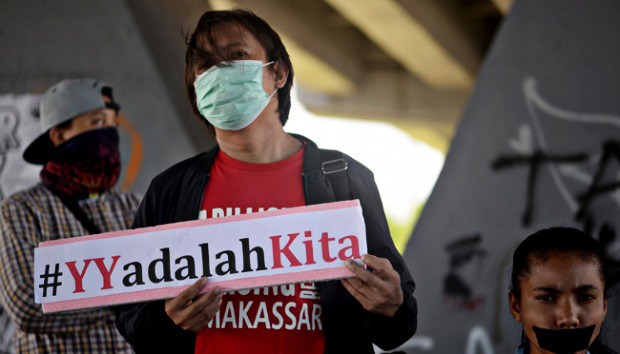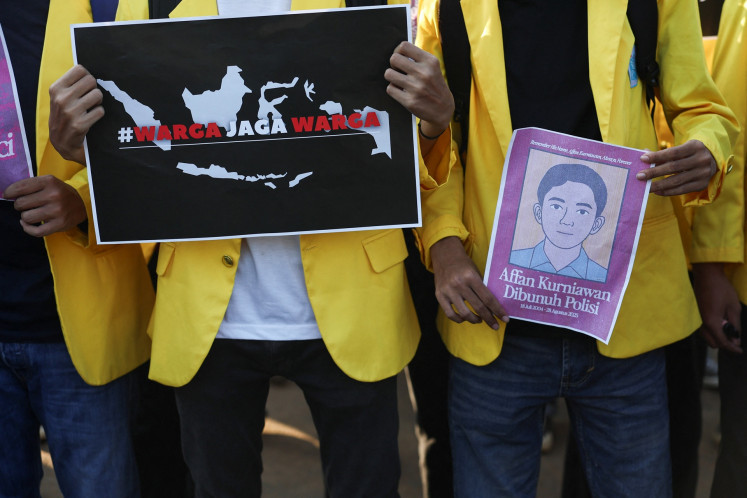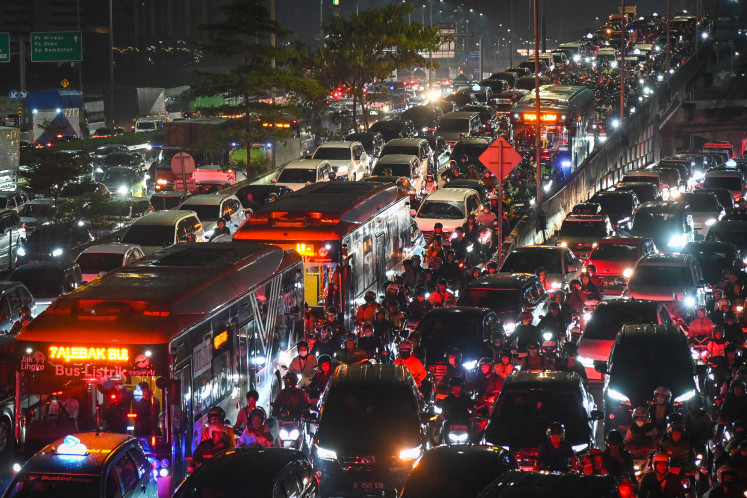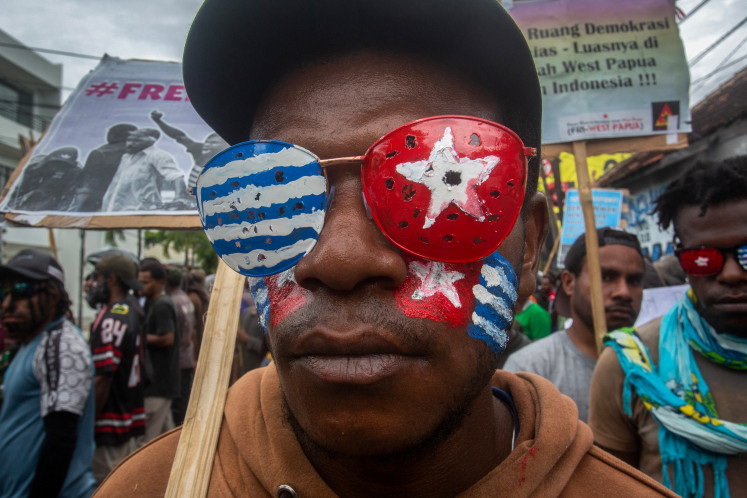Popular Reads
Top Results
Can't find what you're looking for?
View all search resultsPopular Reads
Top Results
Can't find what you're looking for?
View all search resultsThe emergency of sexual violence against children in Indonesia
Change text size
Gift Premium Articles
to Anyone
T
he recent cases of sexual violence against children that have emerged in several areas across Indonesia, has raised a question in our mind: What has happened to Indonesia’s morals?
It was the recent gang rape and murder of Yn, a 14-year-old student from Rejang Lebong, Bengkulu that brought the serious threat of sexual violence against children into our consciousness. The tragic incident of Yn, who was brutally raped and killed by 14 men on her way home from school, has led mourning parents and deeply upset rights activists on a search for effective measures to prevent sexual violence against women and children. This may be just the tip of the iceberg. It is likely that many cases of sexual violence against children are never reported to the public.
In the latest case, a 13-year-old girl, a junior high school student, was reportedly gang raped in Surabaya, East Java. The most alarming fact is, according to the Surabaya Police report, eight perpetrators of the crime are all still underage. Five perpetrators are reportedly junior high school students while the three others are elementary school children.
During their questioning at the police station, it was revealed that the sexual abuse had started nine years ago. Both the victim and the perpetrators were living in an area in Gubeng, Surabaya.
It was AS, the victim’s childhood friend, who reportedly first molested the ill-fated girl when she was 4 years old. In his testimony to the police, AS said he molested the girl almost every day. AS later reportedly had often forced the girl to take a kind of ecstasy pill called Double L from the time she entered the sixth grade, making her addicted to sex and drugs until the present. Knowing that she was addicted to sex, in April this year AS started to invite his friends to rape and molest the victim in a group. The eight suspects had repeatedly molested the victim, the police said.
The gang rape cases in Bengkulu and Surabaya have been widely condemned by all sections of Indonesian society. In a trial on May 10, the Curup District Court in Bengkulu sentenced seven teenagers involved in the rape and murder to 10 years in prison. The court’s panel of judges said the perpetrators, who were aged between 16 to 17 years, were found guilty of raping and murdering Yn.
The Curup Prosecutors’ Office in Rejang Lebong, Bengkulu, called on all Indonesian people to honor the court’s ruling. Community leaders in Rejang Lebong also called on all parties to accept wholeheartedly the court’s verdict. The seven perpetrators should have been given a heavier sentence; but, as they are still underage, a 10-year-imprisonment for each perpetrator could be considered optimal.
The imprisonment of children found guilty of criminal offenses has been long debated. In a statement earlier this year, the Indonesian Planned Parenthood Association (PKBI) said that following the enactment of Law No.11/2012 on the Juvenile Justice System, there should have been no more imprisonment of children found guilty of criminal offenses. The association claimed that arrest, detention and imprisonment of children would potentially curb their rights to freedom and could affect their behavior in the future.
The 2012 Juvenile Justice System Law calls for diversion, or a shifting of the settlement of cases involving child perpetrators from criminal trials to out-of-court settlement. Based on data released by the Law and Human Rights Ministry’s directorate general of correctional institution, the number of cases implicating children reached 3,000 in 2013, a drastic increase from 500 in 2010.
The Indonesian government has made addressing violence against children a priority in its policy agenda. It is also committed to making significant progress in protecting Indonesian children from all forms of violence.
As one of its key measures, Indonesia has adopted the National Strategy to End Violence against Children and the Child Protection National Action Plan, which gives a comprehensive framework to prevent and respond to violent incidents. UNICEF says this framework is critical to ensure the protection of children whether they are at school, home or in public spaces. It is expected that the framework will help Indonesia achieve its Sustainable Development Goals, especially Goal 16.2: Ending violence against children by 2030.
UNICEF has also praised Indonesia’s commitment to join the Global Partnership to End Violence against Children, as a pioneer country. “The Global Partnership has been designed to become technical and funding sources for the implementation of the national strategy to end violence against children while at the same time, it gives a forum for sharing ideas and learning from each other,” UNICEF said in a recent statement.
Based on UNICEF data, violence against children is common in Indonesia. A 2007 study found 40 percent of children aged 13-15 years reported having been attacked at school. However, several areas were not included in the study, including domestic and sexual violence. Therefore, the UN body said, it was highly important to collect comprehensive data to discover the extent of violence against children in Indonesia.
The two gang rape cases in Bengkulu and Surabaya have also shown that many factors can trigger sexual violence against children. These include excessive exposure to pornography, the absence of proper sex education for children, deep-rooted poverty and widespread use of alcohol. Stricter alcohol rules and tougher sanctions for sex crime perpetrators might be crucial in preventing sexual violence against children.
A school curriculum that neglects moral and character building has also been singled out as one of the causes of the crimes. Hence, it is not too much to say the Bengkulu and Surabaya rape cases have rung the bell, telling the government it is time to start developing an education system that builds the good character of students.










